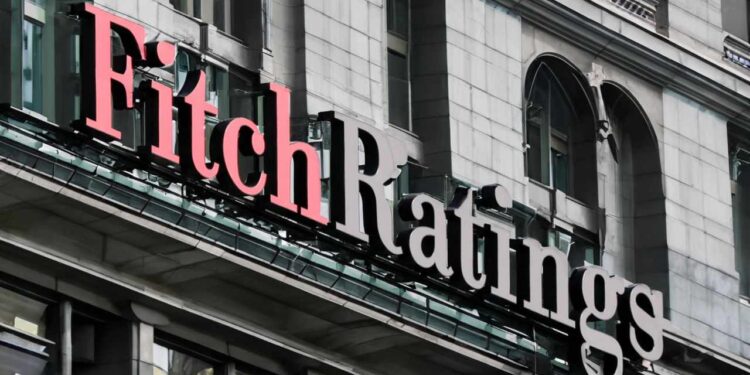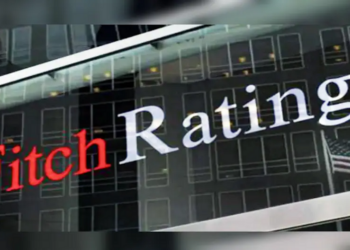Fitch Ratings, a leading provider of credit ratings, commentary and research, has said that Nigerian third-tier banks are more likely to pursue mergers and acquisitions (M&A) or downgrade their licences as they strive to meet the Central Bank of Nigeria’s (CBN) new paid-in capital requirements.
In a report released on Wednesday, Fitch highlighted that while first- and second-tier banks have made significant progress in raising fresh capital, third-tier banks have been slower in their recapitalisation efforts, making consolidation or licence downgrades a more probable route to compliance.
The report read, “M&A activity and licence downgrades remain more likely among third-tier banks.”
CBN’s recapitalisation mandate and compliance options
In March 2024, the CBN introduced a significant hike in paid-in capital requirements—comprising share capital and share premium—for all commercial, merchant, and non-interest banks.
The move was aimed at bolstering financial stability and ensuring Nigerian banks have adequate buffers to withstand macroeconomic shocks.
To comply, banks have three options: fresh equity injections, mergers and acquisitions, or downgrading their licences.
According to Fitch, while major banks are leveraging shareholder support and capital markets to raise new funds, third-tier banks are struggling to attract the necessary capital inflows.
Third-Tier banks facing capitalisation challenges
- Unlike top-tier banks, which have successfully secured substantial capital to retain their current licences, third-tier banks have lagged behind in their capital-raising efforts. The report indicated that many of these banks have yet to obtain shareholder approvals or finalise capital-raising strategies.
- Among the banks still navigating the recapitalisation process is Union Bank of Nigeria (UBN), which remains in breach of the CBN’s 10 per cent Capital Adequacy Ratio (CAR) requirement.
- Similarly, Fitch noted that Wema Bank, a mid-tier lender, has secured shareholder approval to raise capital to retain its national licence and is expected to launch its fundraising process by April 2025. Coronation Merchant Bank has also received board approval but is yet to announce its next steps.
Fitch warned that without swift capital-raising action, these banks may have to resort to mergers and acquisitions or consider downgrading their banking licences to meet regulatory expectations.
Success stories among first- and second-tier banks
Contrasting with the struggles of third-tier banks, the report highlighted that leading commercial banks have made substantial progress in their recapitalisation efforts.
Access Bank and Zenith Bank have already secured enough capital to meet the N500 billion threshold required for international banking licences. Similarly, First HoldCo, United Bank for Africa (UBA), and Guaranty Trust Holding Company are implementing phased capital-raising strategies, with some awaiting regulatory approval for their recent rights issues.
Fidelity Bank and FCMB Group, which belong to the second tier, have successfully completed initial rounds of capital-raising but will need to raise more to sustain their international banking licences.
Also, Fitch pointed out that Ecobank Nigeria and Jaiz Bank required only small capital injections to comply and have already achieved their targets. However, Ecobank Nigeria is still in breach of its 10 per cent CAR requirement and has further capital-raising plans to restore compliance.
Market conditions favour larger banks
Despite economic headwinds, investor sentiment has been largely positive for capital-raising efforts, ensuring that most top- and mid-tier banks have been able to raise funds successfully.
- The strong appetite for equity issuance has reduced the likelihood of widespread banking sector consolidation at the top levels.
- However, third-tier banks, which lack the brand equity and financial muscle of larger players, may find it difficult to attract investors.
- This reality increases the chances that some of these banks will either merge with stronger institutions or opt for a downgrade to a regional or national banking licence.
Implications for the Nigerian banking sector
- The recapitalisation drive is expected to strengthen capital buffers across the sector, reversing some of the losses triggered by the naira devaluation and external economic pressures.
- Fitch noted that stronger capital positions will help mitigate risks from foreign exchange volatility and regulatory uncertainties while creating more room for business expansion.
- However, the rating agency warned that recapitalisation alone is unlikely to trigger a rating upgrade for Nigerian banks due to broader macroeconomic constraints.
- While it may result in a revision of some outlooks to positive, it is unlikely to lift any bank beyond Nigeria’s sovereign rating of ‘B-’.
- Meanwhile, banks that fail to meet the new capital requirements may face regulatory intervention, including potential forced mergers or licence revocations by the CBN.














